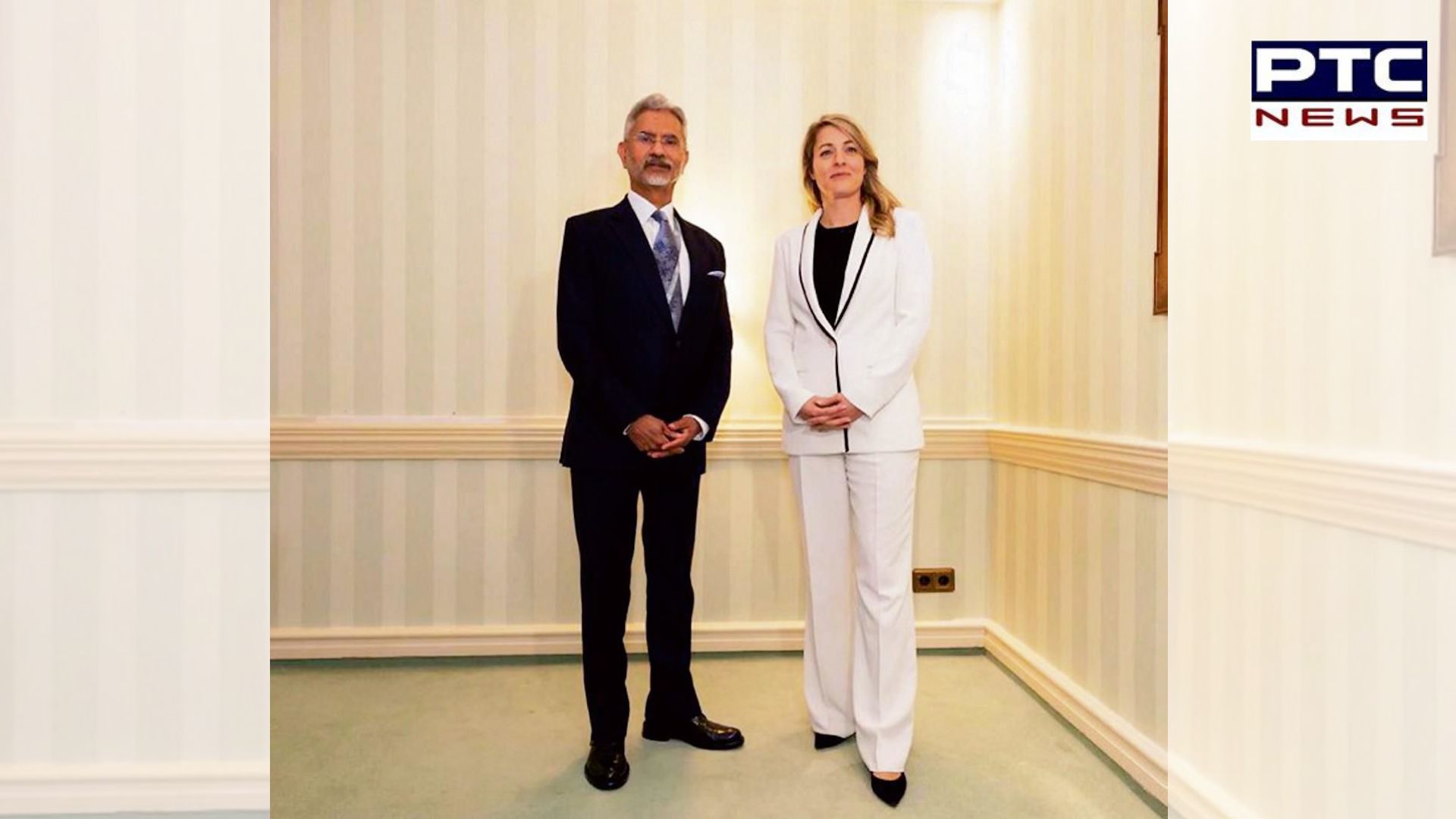

'India not 'anti-west' in Wang Yi meeting': EAM Jaishankar
PTC News Desk: During the ongoing Munich Security Conference, External Affairs Minister S. Jaishankar of India engaged in an impromptu discussion with his Chinese counterpart, Wang Yi. The interaction occurred as Wang was descending from the podium while Jaishankar was ascending for a panel discussion alongside US Secretary of State Antony Blinken and German Foreign Minister Anna Baerbock. Video footage captured the two ministers engaged in a brief yet animated conversation amidst the presence of other foreign dignitaries.
This exchange marked a significant moment as it was the first direct conversation between the two Foreign Ministers in several months. Jaishankar, during the subsequent panel discussion, addressed India's stance on global affairs, particularly in relation to its position vis-à-vis the West. He emphasized that India should be seen as non-Western rather than anti-Western, highlighting the country's robust relationships with Western nations and its continuous efforts to strengthen those ties.
Responding to queries regarding India's approach to multipolarity, Jaishankar defended the concept, asserting that having multiple diplomatic options should be viewed as a sign of strategic acumen rather than a cause for concern. He also clarified that India's engagements are not solely transactional, emphasizing the importance of shared values and beliefs in its diplomatic relations.
Regarding the BRICS (Brazil, Russia, India, China, and South Africa) alliance, Jaishankar underscored its significance, citing its growing membership and the perceived value it offers to participating nations. He likened BRICS to a market-tested product, implying its effectiveness in fostering cooperation among its member states.
Also Read: ISRO's weather monitoring satellite INSAT-3DS lifts off from Sriharikota
Also Read: CM Arvind Kejriwal's AAP govt wins trust vote in Delhi assembly
Furthermore, Jaishankar held discussions with Blinken, focusing on the imperative of ensuring freedom of navigation in the Red Sea. Both ministers recognized the complementary nature of American and Indian strategies in maritime security, particularly in safeguarding economic stability in the region. The talks extended to various geopolitical issues, including developments in West Asia, the Ukraine crisis, and the Indo-Pacific region.
In addition to these engagements, Jaishankar met with Greece's Defense Minister Nikos Dendias and called on Bangladesh's Prime Minister Sheikh Hasina. He also held discussions with Tedros Ghebreyesus, the Director-General of the World Health Organization (WHO), and various foreign ministers from countries such as the UK, Portugal, Poland, Belgium, Canada, Germany, Argentina, as well as representatives from the European Union and Bulgaria.
The series of meetings underscored India's active participation in global affairs and its commitment to fostering cooperation across various regions and multilateral platforms.
Also Read: Arctic Circle prison: One of most dangerous jails in Russia where Putin critic met his end
Also Read: UK, Japan enter recession; focus now on India | Opinion
(Inputs from agencies)
-
